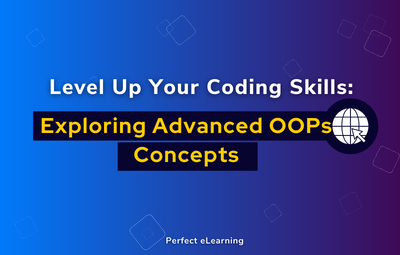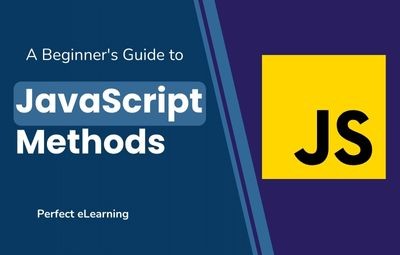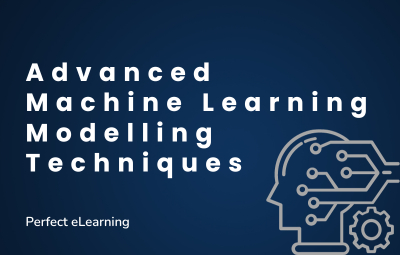

Discover advanced OOPs concepts and enhance your coding skills. Level up your understanding of object-oriented programming with this comprehensive guide.
In the ever-evolving field of programming, it is crucial for developers to constantly upgrade their skills and stay up-to-date with the latest trends and concepts. One such area that demands attention is Object-Oriented Programming (OOP). OOP is a powerful paradigm that allows for modular and reusable code, making it an essential skill for any developer. In this article, we will dive deep into the world of OOP and explore advanced concepts that will help you level up your coding skills.
Understanding the Basics of OOP
Before we delve into the advanced concepts, let's quickly recap the basics of Object-Oriented Programming. OOP revolves around the idea of creating objects that encapsulate data and behavior. These objects interact with each other through methods and form the building blocks of an application. The key principles of OOP include:
1. Encapsulation: Bundling data and methods into a single entity called an object.
2. Inheritance: Creating new classes from existing classes to inherit their properties and behaviors.
3. Polymorphism: Allowing objects of different classes to be treated as objects of a common superclass.
4. Abstraction: Hiding complex implementation details and providing a simplified interface.
The Power of Inheritance
Inheritance is a fundamental concept in OOP that allows classes to inherit properties and methods from other classes. This concept promotes code reuse and helps in organizing code in a hierarchical manner. By leveraging inheritance, you can create specialized classes that inherit common attributes and behaviors from a base class. This not only saves time and effort but also enhances the maintainability of your code.
Understanding Polymorphism
Polymorphism is an influential concept that enables objects belonging to distinct classes to be considered as objects of a shared superclass without any plagiarism. It enables you to write code that can work with objects of multiple types, providing flexibility and extensibility to your applications.Polymorphism is accomplished by utilizing method overriding and method overloading. By leveraging polymorphism, you can write more generic and flexible code that adapts to different scenarios.
Exploring Abstraction
Abstraction is a key principle in OOP that involves hiding complex implementation details and providing a simplified interface for the users. It allows you to focus on the essential features of an object while hiding the internal complexities. By using abstraction, you can create reusable and modular code that is easier to understand and maintain. Abstract classes and interfaces are the building blocks of abstraction in OOP.
Encapsulation: Protecting Data and Behavior
Encapsulation is the practice of bundling data and methods into a single entity called an object and hiding the internal details from the outside world. It provides data protection and ensures that the object's state can only be modified through controlled methods. Encapsulation promotes data integrity and helps in building robust and secure applications.
Advanced OOP Techniques
1. Design Patterns
Design patterns are well-established solutions to frequently encountered design challenges in the realm of software development. They provide a structured approach to solving common design challenges and promote code reusability. Understanding and applying design patterns can greatly enhance your coding skills and make your code more maintainable and extensible.
2. SOLID Principles
SOLID represents a collection of five principles known by their respective acronyms: Single Responsibility, Open-Closed, Liskov Substitution, Interface Segregation, and Dependency Inversion. These principles serve as guidelines for writing clean, modular, and scalable code. By adhering to the SOLID principles, you can improve the quality of your code and make it easier to understand, test, and maintain.
3. Generics
Generics provide the ability to develop classes, interfaces, and methods that are capable of functioning with various data types, thereby eliminating the need for duplicating code.They provide type safety and eliminate the need for casting, resulting in more reliable and efficient code. By mastering generics, you can write reusable and type-safe code that is adaptable to various scenarios.
4. Reflection
Reflection is a powerful feature in many programming languages that enables you to inspect and modify the structure and behavior of classes at runtime. It allows you to write code that can analyze and manipulate other code, opening up possibilities for dynamic behavior and advanced debugging techniques.
5. Designing for Testability
Writing code that is easily testable is an essential skill for any developer. Testable code is modular, loosely coupled, and follows best practices such as dependency injection. By designing your code with testability in mind, you can write comprehensive test suites that ensure the correctness and reliability of your application.
Conclusion
In this article, we have explored advanced Object-Oriented Programming (OOPs) concepts that can help you level up your coding skills. By understanding and applying concepts such as inheritance, polymorphism, abstraction, and encapsulation, you can write more efficient, modular, and maintainable code. Additionally, we discussed advanced OOP techniques like design patterns, SOLID principles, generics, reflection, and designing for testability.
FAQs(Frequently Asked Questions)
Q: What are the benefits of learning advanced OOPs concepts?
A: Learning advanced OOPs concepts helps you write more efficient, modular, and maintainable code. It enhances your problem-solving skills and allows you to tackle complex programming challenges with ease.
Q: Are these concepts applicable to all programming languages?
A: Yes, the concepts of OOP are applicable to most modern programming languages. While syntax and implementation details may vary, the fundamental principles remain the same.
Q: How can I practice and reinforce these concepts?
A: Practice is key to mastering advanced OOPs concepts. You can build small projects, participate in coding challenges, and contribute to open-source projects to gain hands-on experience.
Q: Are there any resources you recommend for further learning?
A: Yes, there are many excellent resources available for further learning. Online tutorials, books, and documentation specific to your programming language can provide in-depth knowledge and practical examples.
Perfect eLearning is a tech-enabled education platform that provides IT courses with 100% Internship and Placement support. Perfect eLearning provides both Online classes and Offline classes only in Faridabad.
It provides a wide range of courses in areas such as Artificial Intelligence, Cloud Computing, Data Science, Digital Marketing, Full Stack Web Development, Block Chain, Data Analytics, and Mobile Application Development. Perfect eLearning, with its cutting-edge technology and expert instructors from Adobe, Microsoft, PWC, Google, Amazon, Flipkart, Nestle and Infoedge is the perfect place to start your IT education.
Perfect eLearning provides the training and support you need to succeed in today's fast-paced and constantly evolving tech industry, whether you're just starting out or looking to expand your skill set.
There's something here for everyone. Perfect eLearning provides the best online courses as well as complete internship and placement assistance.
Keep Learning, Keep Growing.
If you are confused and need Guidance over choosing the right programming language or right career in the tech industry, you can schedule a free counselling session with Perfect eLearning experts.


